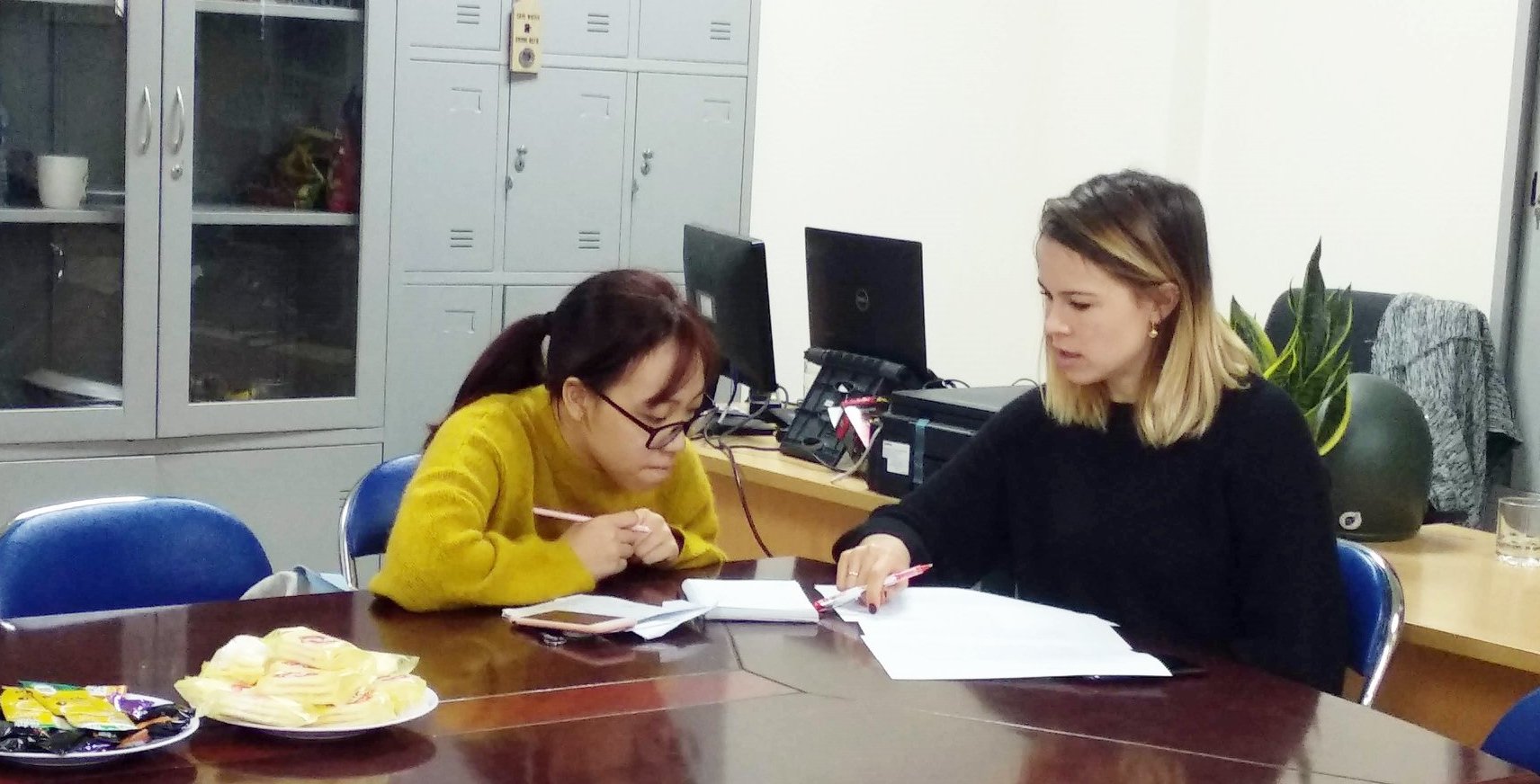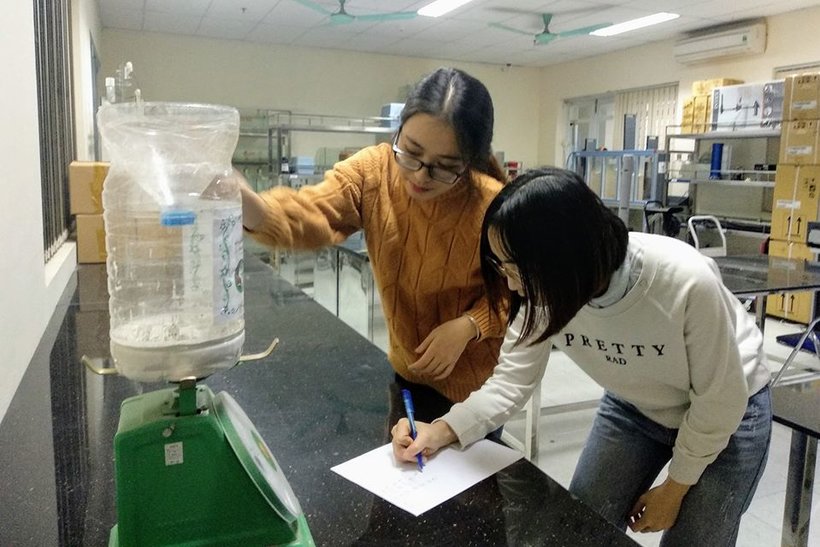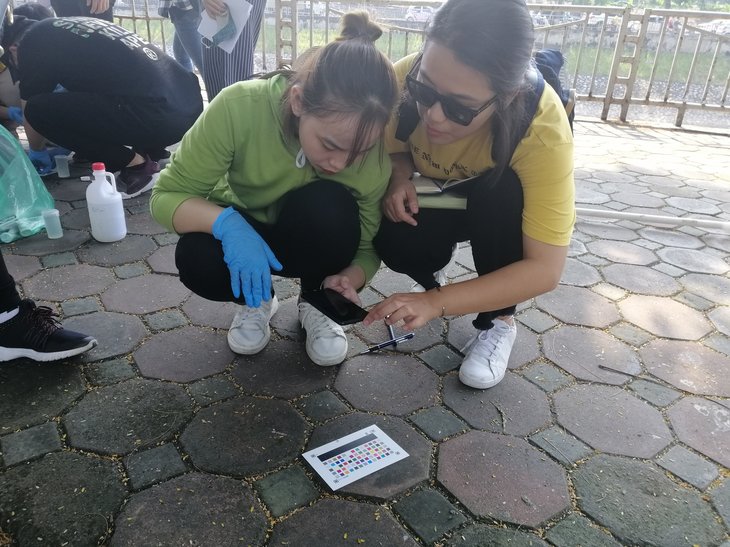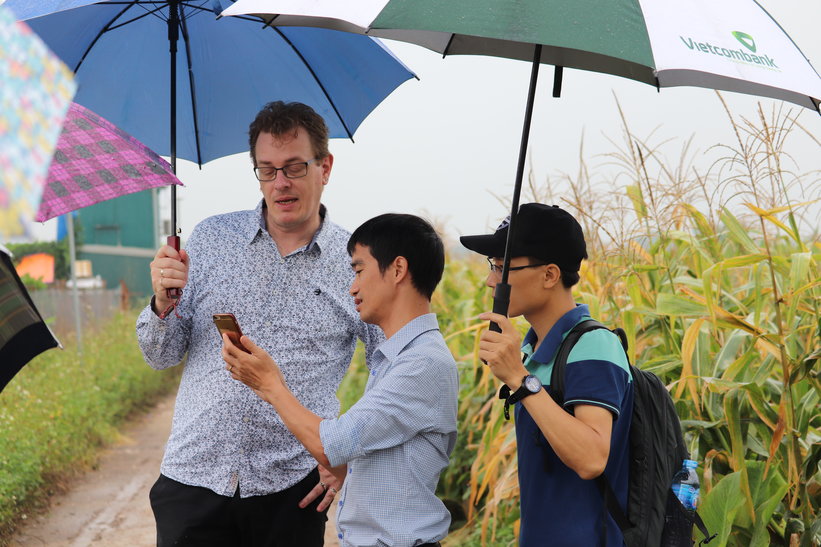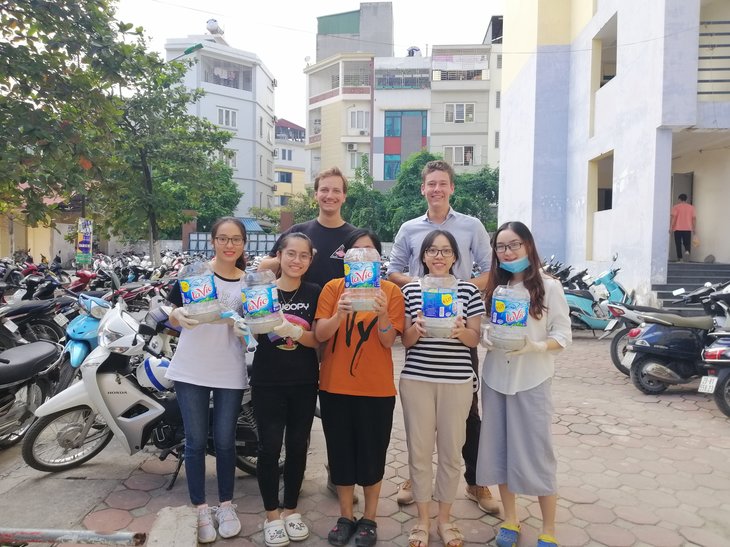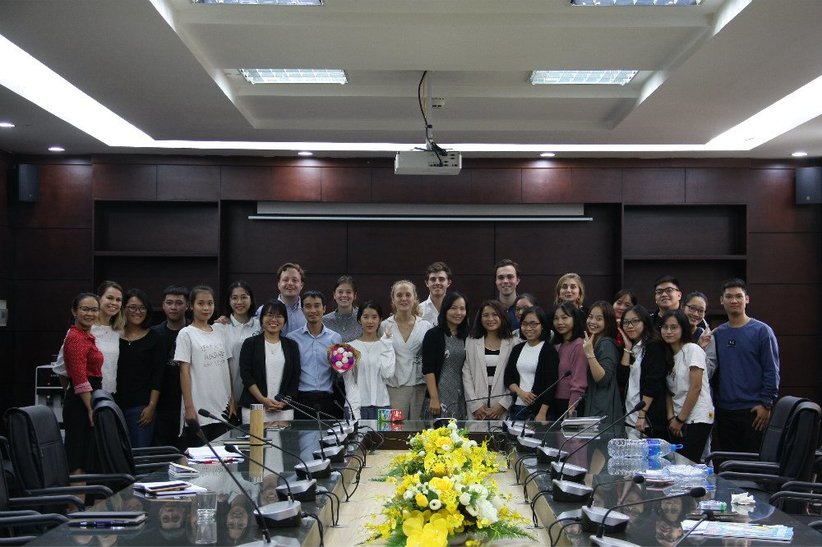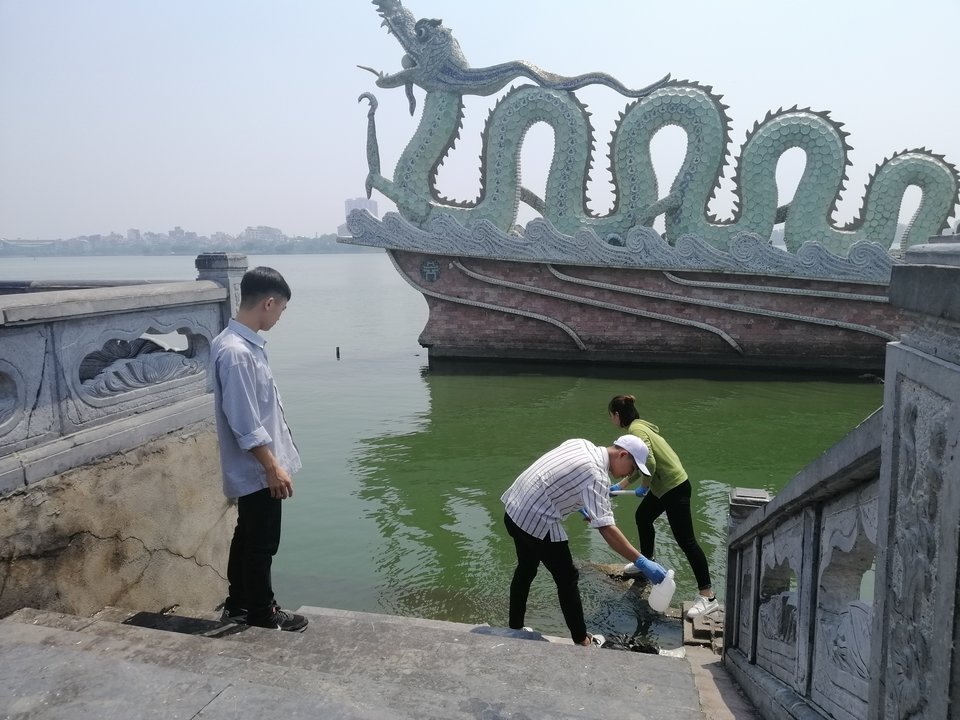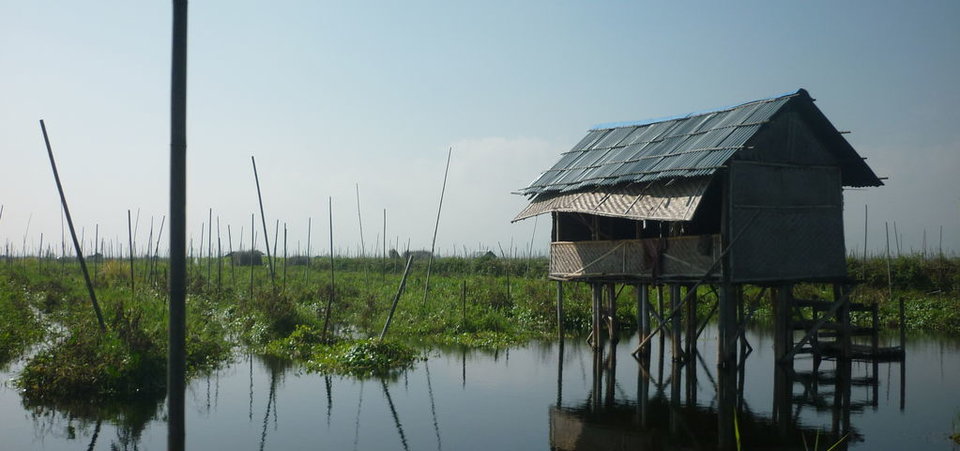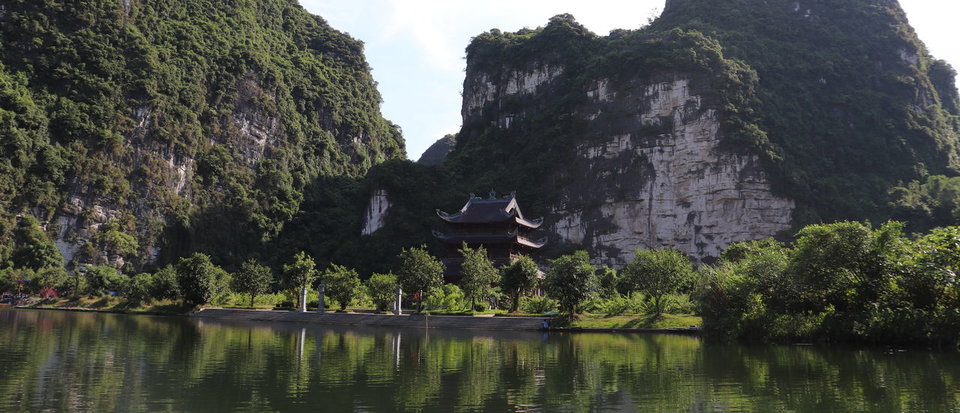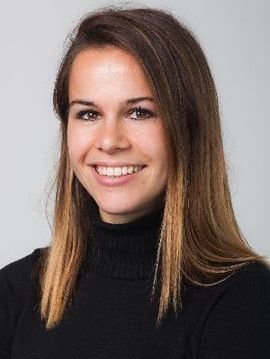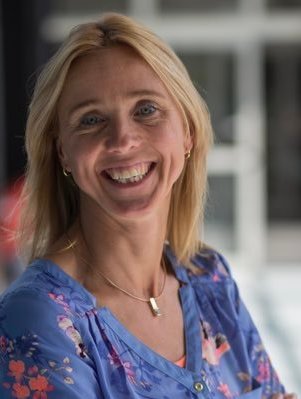Institutional Collaboration in Vietnam during COVID-19
Partnerships with international research institutes and universities have always been important for Delft University of Technology (TU Delft), allowing for new insights and advancing international scientific knowledge. However, in the midst of a global pandemic, how can intercountry collaboration continue, where borders are closed and everyone is working from home? Juliette Eulderink, a Young Water Expert working on capacity building in South East Asia, based in Vietnam, reflects on this new form of partnership. “We had to become very creative in this new situation, and re-prioritise our project activities.”
The TU Delft has been active in Vietnam since 1998 in institutional strengthening, joint research and capacity building. The current focus lies specifically on the fields of integrated water resources and climate change, with the aim to train a new generation of water engineers who are well equipped to enter the labour market and deal with the diverse water management issues that Vietnam faces. Additionally, the current project tries to stimulate entrepreneurship amongst staff and students, and create links with local and international water companies and institutes. The most recent iteration in this partnership began in 2019 and is the Nuffic-funded ‘Climate Proof Vietnam’ project, which is part of the Orange Knowledge Programme (OKP) that offers grants for collaboration projects that strengthen the education sector in specific countries.
Uniquely, ‘Climate Proof Vietnam’ is linked with the Young Experts Programme (YEP), where young Dutch and local professionals work on capacity building in several themes on location all over the world. According to Marjan Kreijns, director of The Green Village, Steering Committee member of the TU Delft | Global Initiative and Steering Committee Member YEP Water, this connection between the programmes is extremely effective: “These two initiatives strengthen each other immensely. At Dutch universities, we are trained to be self-critical and reflective, and these are skills that we can contribute to at our partner institutes in locations such as Asia and Africa. On the other hand Dutch students have little practical experience and knowledge of working in low- and middle-income countries (LMICs). I believe that training the local young generation of experts with Young Experts from the Netherlands can have a lasting impact for both.” Juliette Eulderink, employed by TU Delft is the Dutch Young Expert in this particular programme, and usually lives in Hanoi, Vietnam, to work as a water professional. In her role as resident project manager, she is responsible for the local coordination and implementation of all project related activities on the ground.
Normally within the institutional collaboration project, experts visit Vietnam every few months to offer curriculum advice, give guest lectures, supervise research, give a variety of trainings related to academic excellence, and other face-to-face activities. This became impossible as Vietnam began implementing COVID-19 restrictions: closing universities and schools mid-January, from early February onwards it was no longer possible to have project experts fly in, and work was allowed only from home starting March. Eulderink used to spend every day at the local universities together with her Vietnamese colleagues, including her local Young Expert counterpart Thi Van Le Khoa, lecturer at Hanoi University of Natural Resources and Environment. Because of COVID-19, however, Eulderink now works from her home in Amsterdam while Khoa remains in Vietnam. Although this drastically changed the way of working, Eulderink says it was not all bad: “The early restrictions actually gave us a head start in our response. We had to become very creative in this new situation, and re-prioritise our project activities.”
Caption: The corona crisis has forced a change in how the partnership operates. The left image shows Juliette (right) working on-site in Vietnam, while the right image shows the new way of digitally working together.
New online opportunities
No longer able to fly in and work on the ground, open dialogue became more vital than ever. Eulderink maintains daily contact with Khoa and other partners in order to learn about the most urgent priorities. One of the first things she worked on in this new situation was to provide the partner universities in Vietnam with a tailor-made manual on online education tools, tips, and tricks, as it quickly became clear that online education became the foremost focus. This guide was made with the intention of motivating and inspiring educators who were faced with a transition to online education rapidly and effectively; and although the guide was made specifically for the partners in Vietnam and Myanmar, TU Delft and Nuffic have begun sharing it with parties all over the world. It furthermore has proven valuable in settings outside of online academia, as the creative ways of teaching through online education can be applied in offline classrooms too, and there is potential that online learning can complement traditional lectures and offer new opportunities for off-site education.
Because the shift to online education became urgent on a global scale, many MOOCs and other online educational material from institutes all over the world have been made available online for free or at a reduced cost. As these are not specifically created for the needs of the Vietnamese institutes, the TU Delft and their project partners make recommendations for which courses are relevant for staff in Vietnam. Furthermore, they’re looking into setting up tailor-made programmes: “We are orienting ourselves on organising online training to the staff in Vietnam, working closely together to ensure we provide material that suits the requirements and needs from our partners’ side,” Eulderink comments. Khoa agrees, saying: We are brainstorming about organizing an online Python programming training for staff and how to use the newly bought OKP equipment in the curriculum and for research. Now we have time to prepare well for the new academic year and design exercises and assignments for the students and make optimal use of the new equipment.”
Improvise and Adapt
The global pandemic unexpectedly created opportunities for online education tools, but it also forced an adjustment in the normal ways the partnership usually operates. At the end of this academic year, Vietnamese bachelor students will have a class on groundwater and surface water fieldwork, where they will go into the field to get familiar with hydrological equipment and take measurements in and around the Red River. TU Delft hydrological fieldwork experts were meant to join these field trips and offer support on the ground, but instead, they will be available online from a distance for support in the planning, implementation, and evaluation phase of this course.
Eulderink faced a similar problem: normally she supervises TU Delft students visiting Vietnam to perform research. Now that these students cannot go abroad however, Eulderink has become a thesis supervisor for Vietnamese bachelor students instead. Despite their primary education being in Vietnamese language, some students have chosen to write their thesis in English. This not only facilitates an easier discussion with Eulderink, but in turn also makes their research and knowledge more accessible for a larger audience. The content and form is gradually shifting too: “We try to focus on the incorporation of data collection in the thesis research process. In Vietnam, theses are often very theoretical, but we are starting to discuss together how fieldwork can be of high value in conducting research,” Eulderink says.
Tran Thuy Chi, lecturer Water Quality department of HUNRE, co-supervised thesis work with Eulderink: "Co-supervision is intellectually rewarding and beneficial for both the lecturer and the student. We had online meetings and were working well together to find the best direction for the thesis. I appreciate the working environment where we could exchange international literature, resources and our thoughts over email, which is also useful in my classroom."
Co-creation and dialogue are key
Although it feels like the world has been put on pause, projects like ‘Climate Proof Vietnam’ remind us that in changing circumstances, improvisation and flexibility are a must in order to continue a successful partnership. In fact, the COVID-19 pandemic proved to be an unexpected source for creativity, resilience, and re-prioritising goals when it comes to the capacity building project in Vietnam. Online education tools are changing the way courses are taught not only during the pandemic but will continue to do so after, and offer promising new avenues for cross-country university collaborations. Now more than ever, co-creation and open dialogue are key in promoting excellent research.

